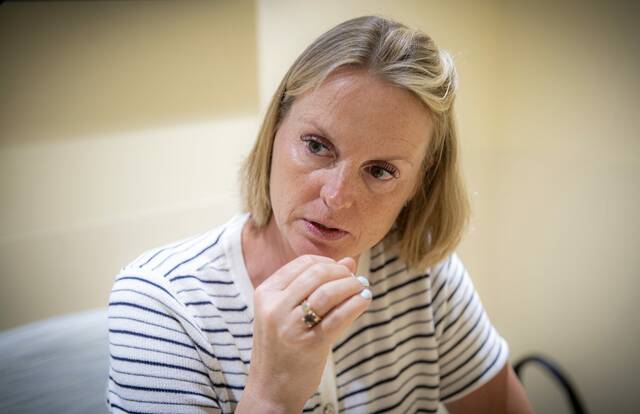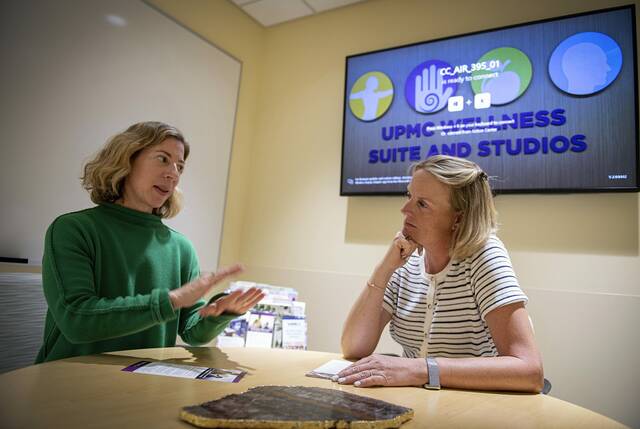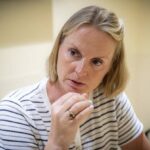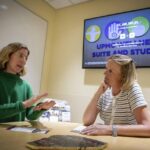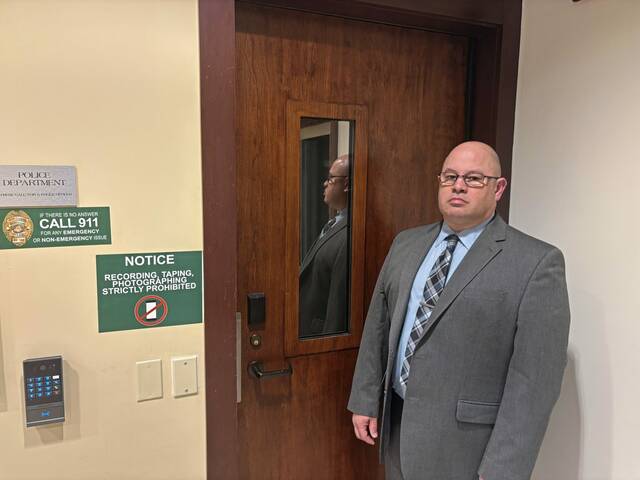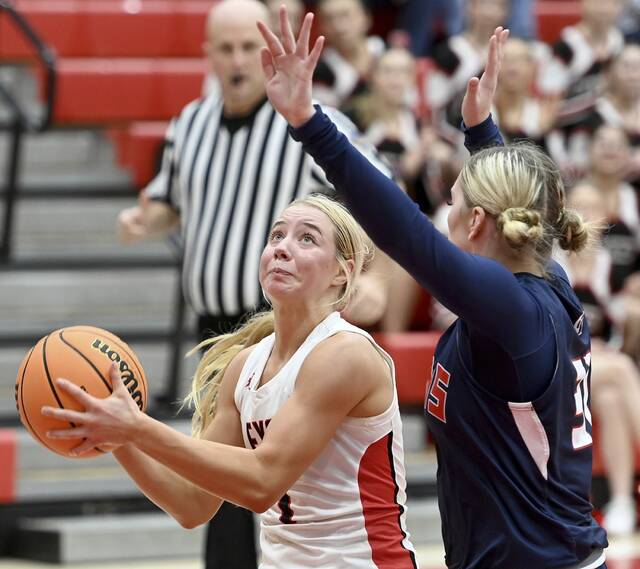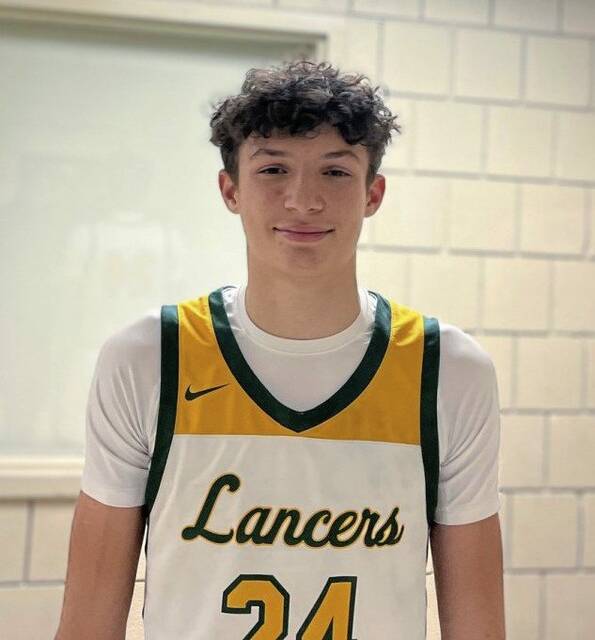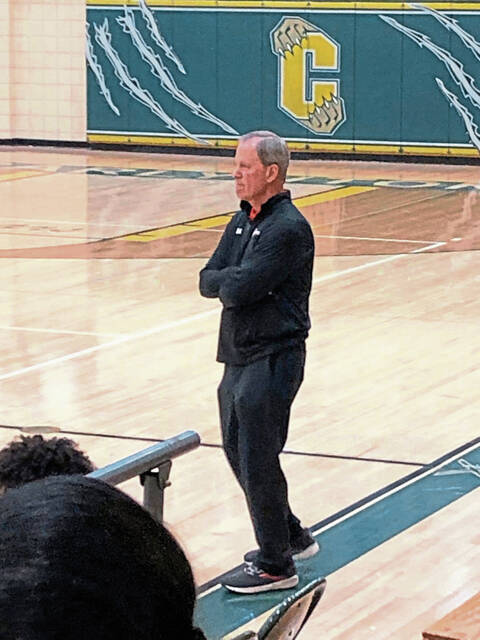Astrid Bitzer was diagnosed with lobular breast cancer in 2022 and after 13 biopsies, ultimately decided on a full mastectomy.
Though clinically in remission, the Indiana Township woman is hedging her bets to keep the disease at bay.
“Cancer is a funny thing,” she said. “What you can be sure of is that cancer still floats around in your body somewhere. I am working to fund a study on what keeps the cancer cells asleep so long and what wakes them up.”
Bitzer, 48, teamed with a researcher from her native Netherlands to raise the profile of lobular cancer, which accounts for up to 15% of breast diagnoses each year. In just two years, her grassroots efforts have brought in more than $700,000 toward research and awareness.
Proceeds from her “Lob the Ball” tennis event in Fox Chapel benefit the Lobular Breast Cancer Research through the UMC Utrecht Friends Fund. UMC Utrecht is a university medical center and an international research partner, which since 2003 has performed groundbreaking studies of lobular cancer, including the development of diagnostic biomarkers and new treatment options.
According to the National Breast Cancer Foundation, lobular is the second most common form of breast cancer. But, mammograms are less likely to detect lobular cancer because of how it develops – in straight lines rather than a lump, according to UPMC medical oncologist Lanie Francis. It doesn’t always show in routine imaging scans, she said.
“It’s important to understand breast density and to advocate for proper testing,” Bitzer said. “Ask for 3D testing and if you are high-risk, ask for an MRI.”
Seven states — Arkansas, Colorado, Florida, Oklahoma, Texas, Utah and Virginia — have enacted breast health legislation this year to eliminate cost burdens for patients seeking diagnostic and supplemental imaging, and expand access to breast cancer screenings.
In Pennsylvania, a similar proposed bill would broaden coverage for mammography and breast imaging exams. Specifically, House Bill 433 addresses coverage for supplemental screenings that include MRIs and ultrasounds.
The bill passed the House and remains in the Senate.
Francis, founder of UPMC Hillman Cancer Center’s Wellness and Integrative Oncology Program, is the clinical lead of the newly named UPMC Cancer Survivorship and Integrative Oncology Program.
Therapies like yoga, meditation and acupuncture are joined with standard treatments for an approach that addresses the body and mind. Since January, the program has seen more than 680 visits for holistic practices.
“We have seen a growing interest that tracks with a general interest in wellness and trying to prevent illness,” Francis said. “A lot of people are so glad to find that we have a program when they’re trying to manage the toxicity of chemo and focusing on next steps to alleviate side effects of neuropathy, pain, nausea and fatigue.”
Bitzer participated in several of Francis’ programs, including acupuncture, exercise and yoga.
“Exercise and recovery go hand-in-hand,” she said. “The other activities were also very helpful in relieving side effects helping to calm me down.”
While both Bitzer’s mother-in-law and sister-in-law died from lobular cancer, she was relatively unaware of the disease.
She believes others are, too.
Bitzer has made it her mission to demand attention for “smaller” cancers.
“It’s not as sexy as some of the big ones, but it affects a lot of people,” she said. “Lobular cancer is seriously under-researched. I am determined to find a way to help this cancer from claiming any more lives.”
Lobular cancer has a good 5-year survival rate, but it also has a high rate of recurrence, she said.
As part of her fundraising, Bitzer hosted the “Lob the Ball” event the past two years at Fox Chapel Golf Club and has already scheduled a third event for May 2026.
Bitzer said she is working to destigmatize breast cancer in hopes more people will educate themselves. In addition to the fundraiser, she volunteers as a patient advocate at her oncologist’s office.
“When I was diagnosed, it was a surprise,” she said. “I seemed too young and had a pretty healthy lifestyle. We need to do this work and spend this money to find out how we can keep this cancer asleep.”



